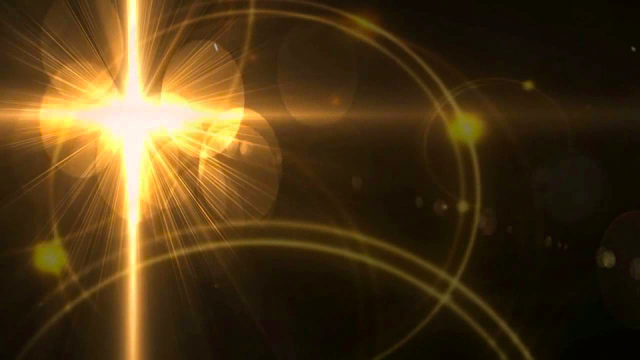"Ha eljön a Vigasztaló..."
"Ha eljön a Vigasztaló, akit az Atyától küldök, az Igazság Lelke, aki az Atyától származik, ő majd tanúságot tesz rólam." ( Jn 15,26 )
Ὅταν ἔλθῃ ὁ παράκλητος ὃν ἐγὼ πέμψω ὑμῖν παρὰ τοῦ πατρός, τὸ πνεῦμα τῆς ἀληθείας ὃ παρὰ τοῦ πατρὸς ἐκπορεύεται, ἐκεῖνος μαρτυρήσει περὶ ἐμοῦ ·
A Παράκλητος-t gyakran írják le valamiféle "fejsimogatóként" a jelen világunkban ( Κένωμα ) , mint egy haldokló mellett a kezét fogó rokon lélekként. Ez sem rossz, de mi lenne, ha nem a haldoklást segítené..., vagy ha igen, nem így.
Szokták említeni szószólóként halálunk után a túlvilágon ( 1Jn 21 ), vagy életünk során..., esetleg a rabbinikus irodalom szerint az igaz ember mellett álló angyal vagy ember aki nem csak közbenjár, de tanúskodik is.
A manicheus zsoltár érdekes szemponttal bővíti a Παράκλητος-ról eddig alkotott tudásunkat, s ez a szemlélet, mivel közel áll személyiségemhez különösen tetszik nekem.
Come, my Lord Jesus, the Savior of souls, who hast
saved me from the drunkenness and Error of the world.
Thou art the Paraclete whom I have loved since my youth:
thy Light shines forth in me like the lamp of light:
Thou hast driven away from me the oblivion of Error:
Thou hast taught me to bless God and his Lights.
I have distinguished this pair of trees of this pair of
kingdoms . . . . . . the bitter fountain and the holy essence of God.
The Light I have distinguished from the Darkness,
life from death, Christ and the Church I have distinguished
from the deceit of the world.
I have known my soul and this body that lies upon it,
that they are enemies to each other before the creations,
the . . . . . of divinity and the hostile power that are distinguished always.
The body of death indeed and the soul are never in accord.
The God of this Aeon has shut the heart of the unbelieving and has sunk
them in his Error and the deceit of drunkenness. He has
made them blaspheme against the God of Truth and his . . . . . .
. . . his power and his wisdom ( Sophia ).
If it was God who created the evil and the good
and Christ and Satan. . . . . . .
. . . . ., then who sent Jesus, that he might. . .
and work among the Jews until they slew (?) him (?)
When Adam and Eve were created and put in Paradise,
who was it that ordered them: 'Eat not of the Tree',
that they might not distinguish the evil from the good?
Another fought against him and made them eat of the Tree.
He cries out in the Law saying: 'I am God . . . .
. . . . no cluster (?) falls from a tree without the Lord God ;
. . . . to fall into a snare nor to . . . . in a city ; who then led
Adam astray and crucified the Savior (?)
The Savior and his apostles and they that belong to the
race of life revealed the Darkness and the essence of the
Enemy; they wept for the body of death, the son of the great . . .
this lion-faced dragon, and his mother also, Matter .
The Light has shone forth for you, o you that sleep in Hell, the
knowledge of the Paraclete, the ray of Light; drink of the water
of memory, cast away oblivion. He that is wounded and desires
healing, let him come to the physician.
I have forsaken the world and its Error, I have loved
my Savior , prayed, fasted , given alms . . . from
my youth up, because of the hour of need,
Come now, my Lord Jesus, and help me.
All hail, O busy soul that has finished her fight and
subdued the ruling-power , the body and its affections.
Receive the garland from the hand of the Judge
and the gifts of Light, and ascend to thy kingdom
and have thy rest.
Glory and honor to our Father, the God of Truth.
Victory and blessing to his beloved son, Jesus, and his Holy
Spirit, our Lord the Paraclete, and all his holy Elect.
Glory to the blessed soul of the blessed Mary, Theona."( Manichaean Writings, Psalm to Jesus V )
Ha jól értjük..., a zsoltár nem abban találja meg a vigasztalást, hogy elfedi a problémát, vagy eltávolítja tőle a szenvedő félt vagy "fájdalomcsillapít".
Hanem épp fordítva..., ἐκεῖνος μαρτυρήσει περὶ ἐμοῦ, jól olvasssuk, a mártír szó van benne, tanúskodni pedig a Κένωμα keretei között ritkán fájdalommentes vállalkozás..., sőt, leginkább halálos, rövid vagy hosszú szenvedés után.
Nem véletlenül választja egyik példájául épp a mártíromságot Kresztes Szent János:
"13. Vegyünk egy más példát. Tegyük fel, hogy valaki mindenáron vértanú szeretne lenni, s Isten így szól hozzá: «Vértanú leszesz». " ( Keresztes Szent János, A Kármelhegy útja, XIX, 13, 205 )
Mi adhatja a fájdalom "csökkenését"? Csak az, hogy jó cél érdekében "tanúskodtunk", ám ehhez tudnunk kellett biztonsággal; - ez a manicheus Παράκλητος ereje:
"The Light I have distinguished from the Darkness,
life from death, Christ and the Church I have distinguished
from the deceit of the world."
Emlékeztet engem ez pár korábban idézett gnosztikus sorra:
"A rabszolga csak a szabadságát keresi, és nem reméli, hogy mesterétől vagyont szerezhet. A fiú azonban nemcsak egyszerűen fiú, egyben igényt tart az atyai örökségre is. Azok, akik a halál örökösei, maguk is halottak, és halált örökölnek. Azok, akik az élet örökösei, maguk is élnek, és egyaránt örökölnek életet és halált." ( Fülöp evangéliuma, A teljes Nag Hammadi gnosztikus könyvtár, 157 )
https://boatswain69.blogspot.com/2022/12/gnosztikus-irodalom-lxxiii-xxix-ahogyan.html
"De most már ismered a tudást. Légy hát rendíthetetlen igazadban, Giordano Bruno, s fogadd a halált komolyan és méltósággal." ( Maróti Lajos, Az utolsó utáni éjszaka, Rivalda, 72-73, 677 )
https://boatswain69.blogspot.com/2023/02/the-mission-of-manicheism-vii-tudd-meg.html
 |
.jpg)


.jpeg)





Nincsenek megjegyzések:
Megjegyzés küldése